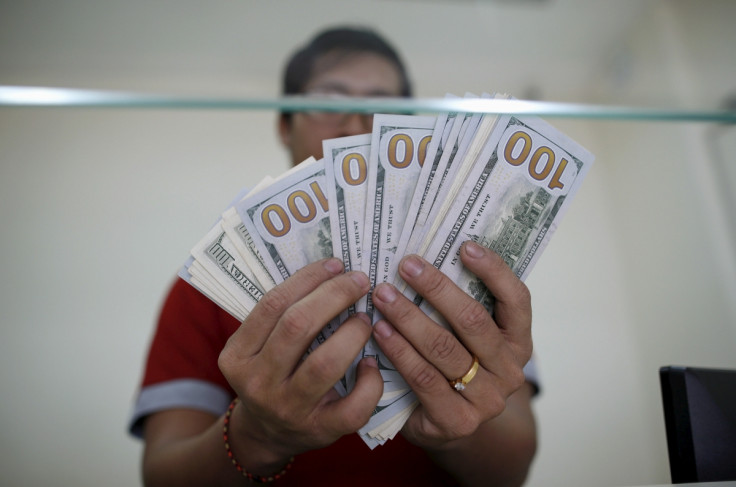World corporate debt far exceeds pre-Lehman financial bubble, warns IIF

Corporate debt across the world has reached extreme levels, warned the Institute of International Finance (IIF), a trade group of financial institutions. The global banking watchdog added that it far exceeded the pre-Lehman financial bubble.
"As the credit cycle ages, following years of record-setting bond issuance, there are growing concerns about signs of stress in corporate balance sheets," the IIF said. It said there was a double threat. While emerging markets had seen a five-fold increase in corporate debt to $25tn (£17.32tn, €21.91tn) over the last 10 years, developed markets such as the US and Europe were seeing record junk bond issuance.
Referring to the US, the IIF said companies were borrowing as if there was no tomorrow even though their profits began to decline in 2014. It said the ratio of net debt to earnings (EBITDA) for companies was at 1.4. This had doubled since the 2007 subprime bubble, according to The Telegraph.
"For the most part, this very significant amount of debt has been used to pay dividends, buy back shares and fund M&A transactions, rather than financing capital spending, which has been on a declining trend since 2012 (and fell 3.5pc in the first quarter on 2016)," the IIF explained.
On junk bonds, a high-yielding high-risk security, typically issued by a company seeking to raise capital quickly, Europe and the US put together are reported to have issued them at double the pace when compared to the pre-Lehman period. "Of particular concern is that since US high-yield companies have increased their debt relative to assets, the recovery rate on defaulted bonds has declined sharply," the IIF said. It added that corporate defaults were at the highest levels since the financial crisis and it was "not restricted to the energy sector."
The IIF said the situation was complex as on the one hand there were cash-rich companies, on the other there very many smaller companies which had huge amounts of debt on their books. Cash that large businesses were holding onto was estimated at $1.6tn in the US, $2.2tn in Europe, and $2tn in Japan.
The warning coincided with warnings issued by the Hong Kong Monetary Authority, the country's currency board and de facto central bank. It said giving companies access to easy money over years had put the global systems in danger. Howard Lee, the executive director at the board said: "We are far from out of the woods, given new risks and headwinds on multiple fronts. There is the threat of a disorderly pullback in capital out of the region."
© Copyright IBTimes 2025. All rights reserved.





















